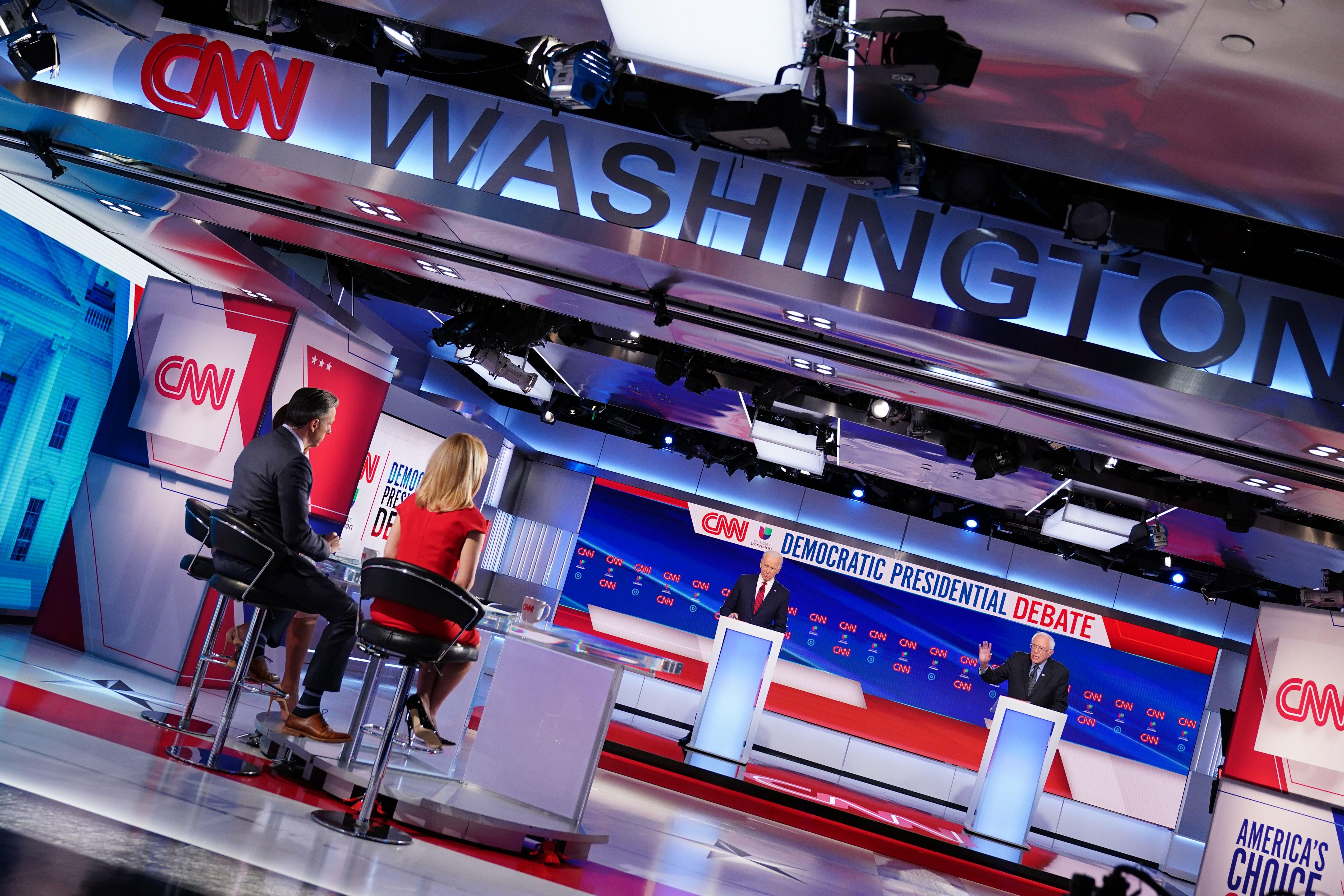Sunday night showed that restaurants, clubs, bars, and theaters aren’t the only venues that should be closed to the public. The rule should also apply to presidential debates— and for reasons having nothing to do with the coronavirus.
The debate between Joe Biden and Bernie Sanders was more focused than usual not just because the match was one-on-one, but also because the format—a small network studio with no live audience, meaning no campaign staffers or other partisans egging their candidate on—held no rewards, and thus no incentives, for red-meat applause lines or shouting.
The question of who won could be decided less by how the candidates performed and more by what they said. After the coronavirus scare is over, all debates should be done this way.
Presidential debates, much less their precise format, are far from enshrined in the American political tradition. There were no such debates until the 1960 bout between John F. Kennedy and Richard Nixon (though the Republicans held a debate between their primary opponents in 1948, and the Democrats followed course in 1956). Then, after the 1960 duel, whose telecast might have won the election for the dashing JFK, no debates took place for the next 16 years.
The custom was revived with the contest between Jimmy Carter and Gerald Ford in 1976. The event was sponsored by the League of Women Voters, a truly nonpartisan organization, which set the rules, selected the moderators, vetted the studio audiences, and instructed them to be quiet. The League sponsored the next two debates as well (Carter vs. Ronald Reagan in 1980, Reagan vs. Walter Mondale in ’84), but then pulled out before the 1988 contest, complaining that the campaigns were demanding too large a say in setting the rules and packing the hall. The group’s trustees released a statement:
The League of Women Voters is withdrawing sponsorship of the presidential debates … because the demands of the two campaign organizations would perpetrate a fraud on the American voter. It has become clear to us that the candidates’ organizations aim to add debates to their list of campaign trail charades devoid of substance, spontaneity, and answers to tough questions. The League has no intention of becoming an accessory to the hoodwinking of the American public.
And so it has been ever since, exacerbated by the news networks’ thirst for clash and cacophony.
But Sunday night’s contest showed that, in the absence of a crowd cheering on the combatants’ more pandering tendencies, a debate can be a useful exercise after all—a way to gauge the candidates’ views and character.
A preview of this possibility was first glimpsed on the night of Biden’s Super Tuesday victories. Amid the early warnings of the coronavirus, Biden delivered his speech to just a small group of supporters. It was a quiet speech, calling for party unity, and he delivered it quietly. In earlier speeches, he’d had to yell to be heard over the loud, hooting crowds, and the yelling often triggered the stuttering from his youth. This time, there was no crowd, no yelling, no stuttering, and, as the Washington Post reported, many called his words and his demeanor “presidential, a sign of leadership, and a contrast to President Trump’s bluster.”
The relative calm of Sunday night’s debate made Sanders look better too. Rather than treating the forum as a rally, bellowing his stump-speech diatribes against greedy corporations and billionaires, he laid out lines of argument and engaged Biden in a dialogue about their comparative records and plans. (Their discussion of short-term versus long-term solutions to economic inequality was actually interesting—and captured a major difference between their concepts of politics.) Whether he came off better or worse in this brand of contest is a matter for the viewers and voters to decide. I think Biden won on points, but Sanders took a few as well. In any case, the points, whoever won them, were won on substance, not theatrics; and the format, unlike that of the previous debates, allowed that to be so.
Maybe it’s just as well that mass campaign rallies are called off for a while too. They do gin up enthusiasm, which boosts voter turnout, but they shed no light on how a candidate would approach problems or make decisions in the Oval Office. Exhibit A is Donald Trump, a spitfire in rallies and utterly aimless on the job. Maybe in this time of multiple, deadly crises, voters might focus more than usual on a candidate’s suitability for the office.
